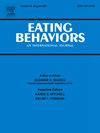Dimensions of perfectionism in subtypes of anorexia nervosa, atypical anorexia nervosa, and bulimia nervosa
IF 2.4
3区 医学
Q2 PSYCHIATRY
引用次数: 0
Abstract
Objective
Perfectionism is implicated in the development and maintenance of eating disorders (EDs), yet its dimensions across ED diagnoses and behavioral presentations remain underexplored.
Method
This study examined differences in Personal Standards and Concern Over Mistakes, two subscales of the Frost Multidimensional Perfectionism Scale, among individuals with anorexia nervosa (AN), atypical anorexia nervosa (AAN), and bulimia nervosa (BN) and between restricting and binge-eating/purging behavioral presentations. Participants included 546 individuals (Mage = 30.1, 97 % female) meeting DSM-5 criteria for AN, AAN, or BN, with behavioral presentations categorized as restricting (AN/AAN-restricting; n = 260) or binge-eating/purging (BN and AN/AAN-binge-eating/purging; n = 286).
Results
Personal Standards were higher in AN and AAN compared to BN (ds = 0.38–0.42), but no differences emerged between AN and AAN. Similarly, restricting presentations had higher Personal Standards scores than binge-eating/purging presentations (d = 0.32). However, Concern Over Mistakes did not differ across diagnoses or behavioral presentations.
Discussion
These results highlight the nuances of perfectionism in EDs, extending prior work by comparing AN, AAN, and BN and behavioral presentations. Higher Personal Standards in restrictive EDs may suggest a tendency toward rigid goal-setting and high self-imposed standards, which may contribute to dietary restraint and strict self-control. The lack of differences in Concern Over Mistakes suggests the transdiagnostic relevance of self-critical perfectionism across EDs. These findings underscore the importance of considering both shared and distinct perfectionism dimensions to understand ED psychopathology and individual differences. Future studies should investigate the utility of dimension-specific perfectionism interventions for EDs.
神经性厌食症、非典型神经性厌食症和神经性贪食症亚型的完美主义维度
完美主义与饮食失调(ED)的发展和维持有关,但其在ED诊断和行为表现中的维度仍未得到充分探讨。方法研究了Frost多维完美主义量表的个人标准和错误关注两个分量表在神经性厌食症(AN)、非典型神经性厌食症(AAN)和神经性暴食症(BN)患者中的差异,以及限制型和暴食型行为表现之间的差异。参与者包括546名符合DSM-5 AN、AAN或BN标准的个体(年龄为30.1,97%为女性),行为表现分为限制性(AN/AAN限制性;n = 260)或暴食/泻食(BN和AN/ aan -暴食/泻食;n = 286)。结果AN和AAN的个人标准高于BN (ds = 0.38 ~ 0.42),但AN和AAN之间没有差异。同样,限制陈述比暴食/净化陈述具有更高的个人标准得分(d = 0.32)。然而,对错误的关注在诊断或行为表现上没有差异。这些结果突出了ed完美主义的细微差别,通过比较AN、AAN和BN和行为表现扩展了之前的工作。限制性急症患者较高的个人标准可能表明他们倾向于严格的目标设定和较高的自我强加标准,这可能有助于饮食限制和严格的自我控制。对错误的关注缺乏差异,这表明在ed中自我批评的完美主义具有跨诊断的相关性。这些发现强调了考虑共同和独特的完美主义维度对于理解ED精神病理和个体差异的重要性。未来的研究应探讨特定维度的完美主义干预对急症患者的效用。
本文章由计算机程序翻译,如有差异,请以英文原文为准。
求助全文
约1分钟内获得全文
求助全文
来源期刊

Eating behaviors
Multiple-
CiteScore
4.20
自引率
3.60%
发文量
65
审稿时长
60 days
期刊介绍:
Eating Behaviors is an international peer-reviewed scientific journal publishing human research on the etiology, prevention, and treatment of obesity, binge eating, and eating disorders in adults and children. Studies related to the promotion of healthy eating patterns to treat or prevent medical conditions (e.g., hypertension, diabetes mellitus, cancer) are also acceptable. Two types of manuscripts are encouraged: (1) Descriptive studies establishing functional relationships between eating behaviors and social, cognitive, environmental, attitudinal, emotional or biochemical factors; (2) Clinical outcome research evaluating the efficacy of prevention or treatment protocols.
 求助内容:
求助内容: 应助结果提醒方式:
应助结果提醒方式:


